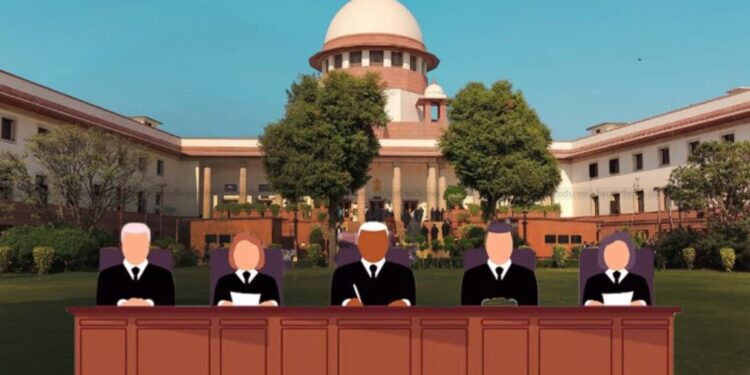The Delhi High Court recently ruled that the reasons for the Supreme Court collegium rejecting candidates recommended by the High Court collegium for judgeships cannot be made public, as it would be detrimental to the interests of those candidates [CA Rakesh Kumar Gupta v Supreme Court of India through Secretary General].
A Division Bench consisting of Acting Chief Justice Manmohan and Justice Tushar Rao Gedela stated that the collegium’s deliberations and decisions are based on private information about the individuals.
“Such information, if made public, will have the effect of stifling the appointment process,” the Bench held.
The Bench also noted that the High Court cannot review the subjective satisfaction of the Supreme Court collegium.
The law regarding the appointment of judges is well established, with the apex court consistently distinguishing between the eligibility and suitability of a person to be appointed as a judge of the High Court.
“Eligibility is an objective factor determined by applying the parameters or qualifications specified in Article 217(2), whereas fitness and suitability are evaluated in the consultative process,” the High Court explained.
These observations were made while dismissing an appeal filed by Rakesh Kumar Gupta.
Gupta had initially approached a single-judge bench of the High Court, seeking directions for the Supreme Court to publish the reasons for rejecting the High Court collegium’s recommendations. The single-judge bench had dismissed his petition and imposed a cost of ₹25,000 on him, prompting the appeal to the Division Bench.
Gupta argued before the Division Bench that he had the locus to file the writ petition as a resident of Delhi, stating that his cases were delayed due to the lack of judges. He contended that the shortage of judges in High Courts also leads to inadequate supervision of District Courts, affecting their functioning.
He also noted that the rejection rate of High Court collegium recommendations by the Supreme Court was 35.29% in 2023, compared to only 4.38% in 2021.
After considering the case, the Division Bench determined that Gupta’s contention regarding the “rejection” of the High Court collegium’s recommendations by the Supreme Court was misconceived.
“The appellant has failed to understand that the appointment of a judge to the High Court or Supreme Court is an integrated, consultative, and non-adversarial process, which cannot be challenged in a court of law except on the grounds of lack of consultation with the named constitutional functionaries or lack of eligibility conditions in the case of an appointment, or of a transfer being made without the recommendation of the Chief Justice of India,” the High Court stated.
The court dismissed Gupta’s appeal, advising that if he believed his matters were delayed, he could file an application for an early hearing.
Gupta appeared in person. No one appeared for the Supreme Court.

















